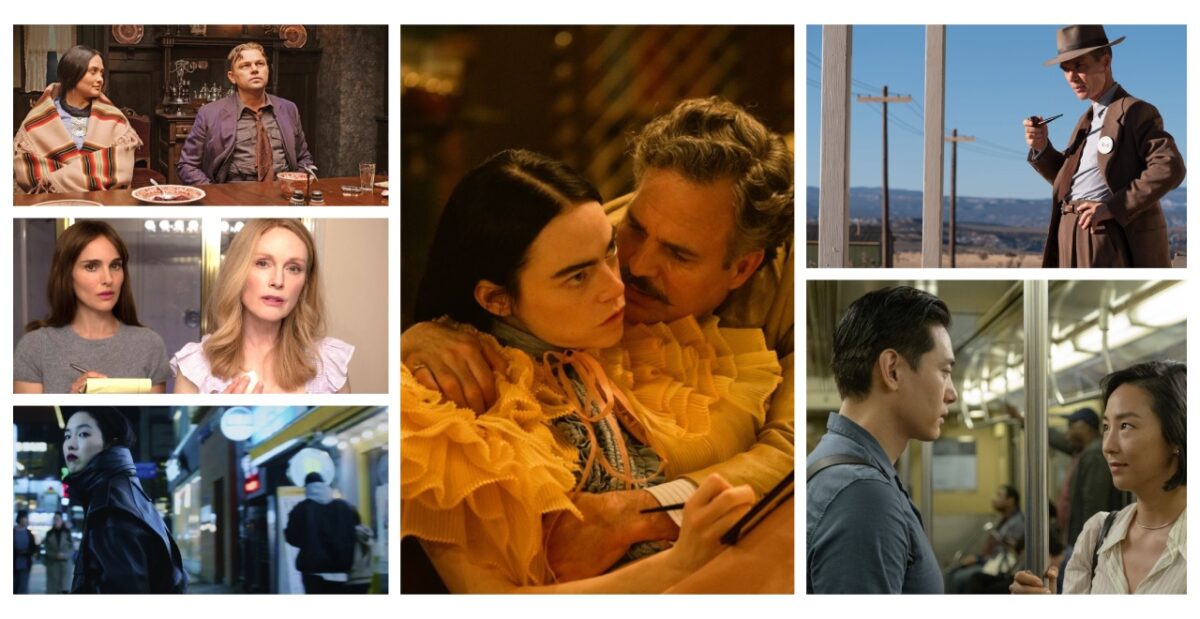This year, we had the atom bomb vs. the Barbie doll, simultaneous writer and actor strikes, and oh great, now artificial intelligence. The toughest year on the industry in a generation served as a wake up call to those who thought it couldn’t get any worse. Stingy CEOs, a “vacuum in leadership,” and the burst of the superhero movie bubble seem to mark a tough future ahead for the industry, one that will test just how “true” of a relationship there is between the studios and the labor force. Nonetheless, quality cinema prevailed in 2023, with or without promotion from its crews and stars. Here are our top 10 films of 2023:
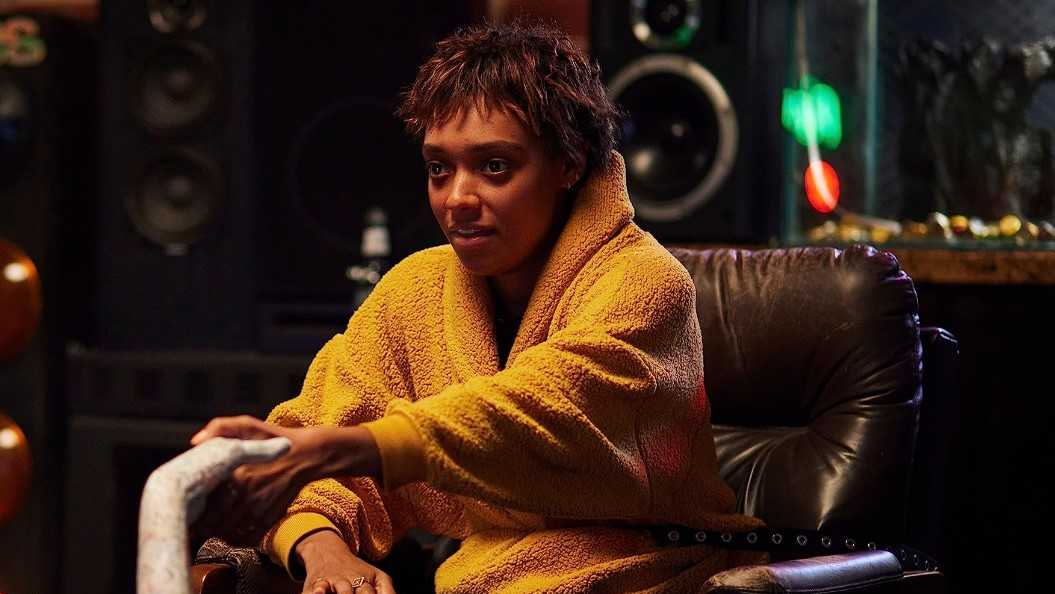
10. Talk to Me
O.G. Youtubers Danny and Michael Philippou made their long awaited jump to the big screen this year. Having moved to Los Angeles specifically to get this film made, the brothers took their spin on psychedelic horror not with VFX, but with ingenious filmmaking techniques. The plot of an embalmed hand conjuring seances serves as an outlet to further explore the theme of connection. After discovering she’s able to communicate with her dead mother via this seance, Mia (Sophie Wilde) treads too deep only to put the ones closest to her at stake. As insane practices lead to insane prosthetic gore, Talk to Me doesn’t use horror flash for the cheap scare. Rather, it uses its techniques to pull you through an actual engaging story one thread at a time, setting the Philippou brothers on a trajectory that will put them among the same ranks this decade as Ari Aster and Robert Eggers.

9. The Zone of Interest
More art installation than narrative, The Zone of Interest dares to answer an age old question: how do we depict an atrocity? Do we add a narrative thru-line to convey a character amongst it? Do we follow a conflict at the risk of fetishizing or sympathizing with a character? The answer is: we don’t. Instead, we invoke complete objectivity. Holocaust films have become a genre in and of itself. They seclude themselves to a specific, sensitive kind of film category. There is no real conflict in this film, there is no real story (director Jonathan Glazer has even said so himself). For with it, the film runs the risk breaking through the wall of subjectivity. Following Rudolph Höss (Christian Friedel), the commandant of Auschwitz concentration camp, and his family, the film predominately takes place in their home just at the edge of the camp, as they go about their daily lives in blissful repression of what’s going on just on the other side of that wall. In each scene, we hear, not see, screams, gun shots, hounds, commands in German, with merely a smokestack in the background to convey any visual emphasis. We can close our eyes, but we can’t close our ears. How does someone find it so easy to kill people? Sadly, the answer is in front of our faces the entire time: you don’t see them as human.

8. Past Lives
Celine Song’s autobiographical debut film isn’t necessarily one that harkens back to an old love so much as it does an ulterior narrative that runs parallel to the one happening now. It’s not the “the one that got away”-type film. We already know he’s (Hae Sung, played by Teo Yoo) gotten away. Rather, it’s a film that deals with the phases of ourselves that come with it. With each new partner that leaves, we are forced to become a different person. This film’s about learning how to say goodbye – an acknowledgment of the past so that you can enter this new phase of yourself, and knowing that, in time, this new self will also require a goodbye. And then that will lead to another goodbye, and another… all leading up to the greatest goodbye of all. So how do we say goodbye? We administer the word in a breath of mercy and simply say it. Goodbye.

7. Return to Seoul
A Cambodian production, spoken in French, but set in Korea, Return to Seoul disguises itself as one thing only to seamlessly transform into another. When Freddie (Park Ji-min), a French national born in Korea but adopted by French parents, goes to find her birth parents when her flight from Japan is “cancelled,” she discovers that they are not what she was promised. Strained with guilt and desperation, her father pleads for her to stay, as she discovers the life she could have led is not what it seems. What at first starts out as lighthearted curiosity which turns into a thriller, Return to Seoul is a film about riding assimilation between cultures and identities, and how each one can take you in a radically different direction.
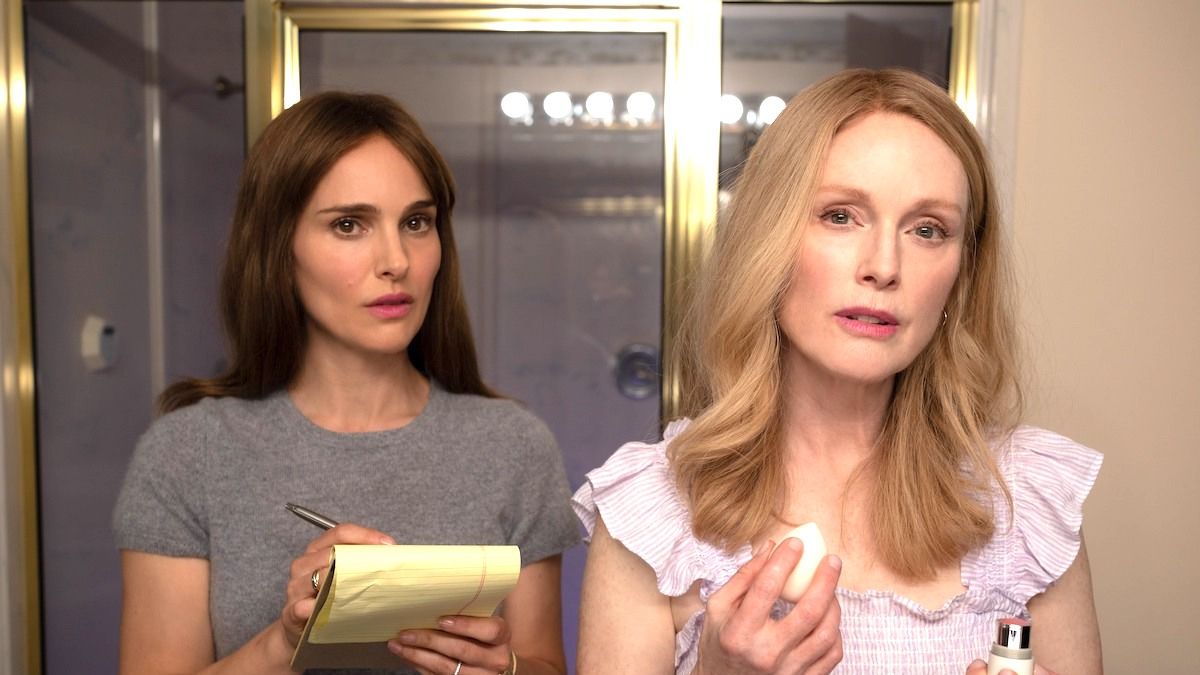
6. May December
Boy that guy from Riverdale can really act huh? Todd Haynes’s latest feels like a Lifetime movie in the first half and then makes you realize you’ve been watching a psychological horror film in the second. Following an actress (Natalie Portman) as she studies an ex-tabloid frenzied mother (Julianne Moore) who had an affair with an underage kid (Charles Melton) years ago, May December shows that we truly remain the same age in which we experienced our trauma. Complete with a kitschy score and ridiculous zoom-ins to convey emphasis, it feels and plays like a TV movie (perfect for Netflix), only to unfurl into a psychological drama of repressed emotions that rise to the surface. Our trauma from then on shapes us who we are (physically and mentally), tells us how to act, tells us how to treat others, to the point where we never truly grow out of it, to the point where we feel we’ve been robbed of an authentic adolescent experience. Others know how to compartmentalize, properly digest, so much so that they don’t feel like they’re doing anything wrong at the expense of others. But hey, that’s just what adults do.
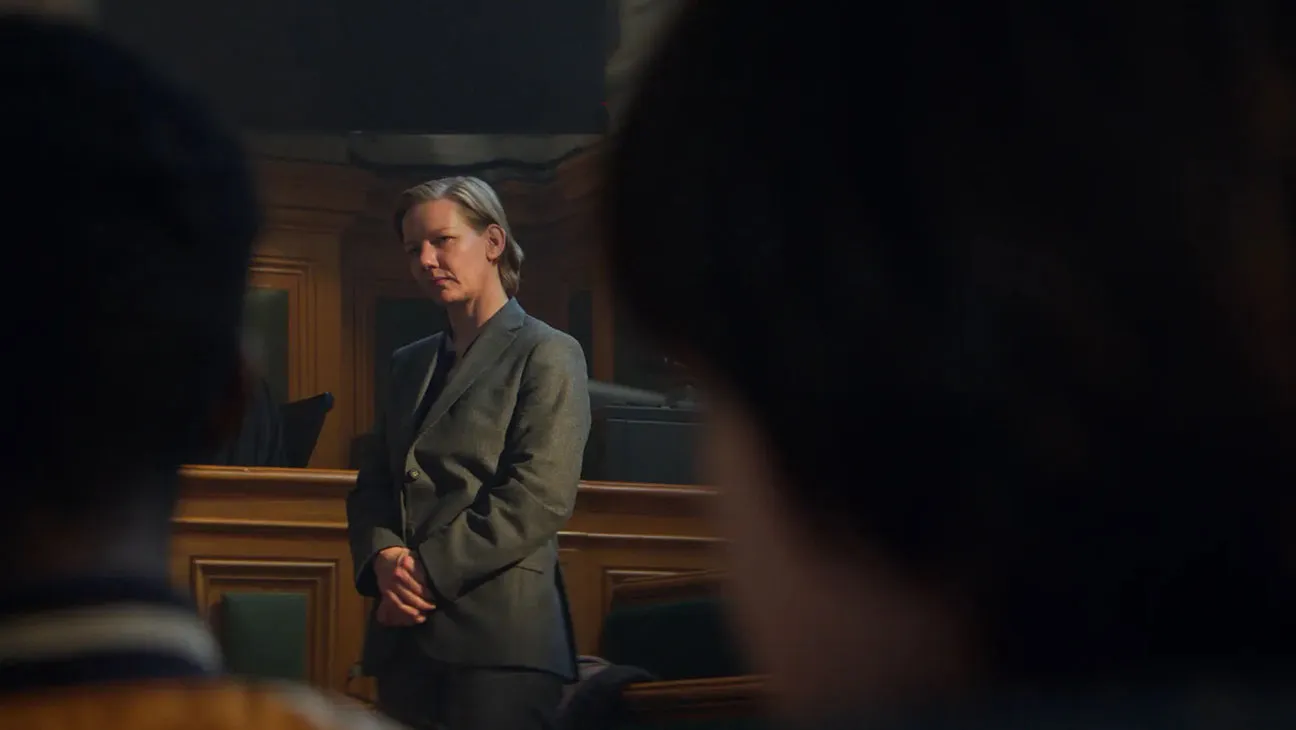
5. Anatomy of a Fall
This year’s Palme d’Or winner didn’t really supply any answers, only raised more questions. When Sandra Voyter (Sandra Hüller) is put on trial for pushing her husband off of their ski chalet, the film dives into ethical and moral dilemmas that traverse far beyond any answer to the question of “did she do it?” Whether that answer is actually given or not is beside the point. But the better question is, did she “kill” her husband? Yes, entirely possible. But even if it was a suicide, could she still have done it? Could her constant suppression of emotions and emotional discourse be enough to drive her husband to his death? This film goes far beyond any reasonable CSI forensic explanation, because when the culprit is emotional, intangible, what is there to be proven? Pornography for dialogue, Anatomy of a Fall explores the gray area in forensics and proves that the legal system does not account for human emotions.
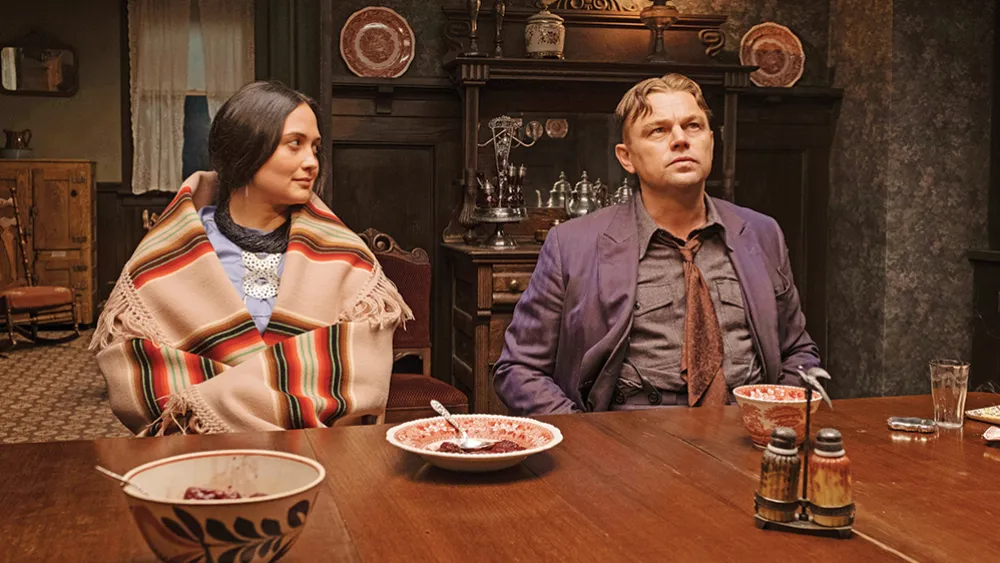
4. Killers of the Flower Moon
Packed with everyone’s favorite rockstar, Killers of the Flower Moon ambitiously sets Scorsese’s sprawling gangster epic taste on the Osage Indian Reservation, serving as new territory for his often crime/gang-riddled stories. Standing at a daunting three and a half hours, the film is best digested, of course, in a theater. Some people will check their phones periodically, others will undoubtedly have to get up to visit the restroom. And that’s totally understandable. But the best way to experience this film is to let it just wash over you. The Robbie Robertson posthumous score and the towering performances remind us why cinema can just take over you, where your gut instinct and overall first impression take over intellect which becomes secondary. It’s one of those epics that instantly commands your attention. Featuring perhaps the best performances Scorsese has ever elicited from De Niro and DiCaprio, the casting choices take on lives of their own as they soar over you. Yes, the runtime seems overwhelming. Yes, the film’s brutality is hard to watch at times. And yes it does feel like “a lot” happens. But as the pendulum swings from long content to short content, where the two extremes grow further and further apart, a longer runtime becomes an indication of what can challenge you. And no other filmmaker alive right now is more dedicated to challenging their audiences than Martin Scorsese.
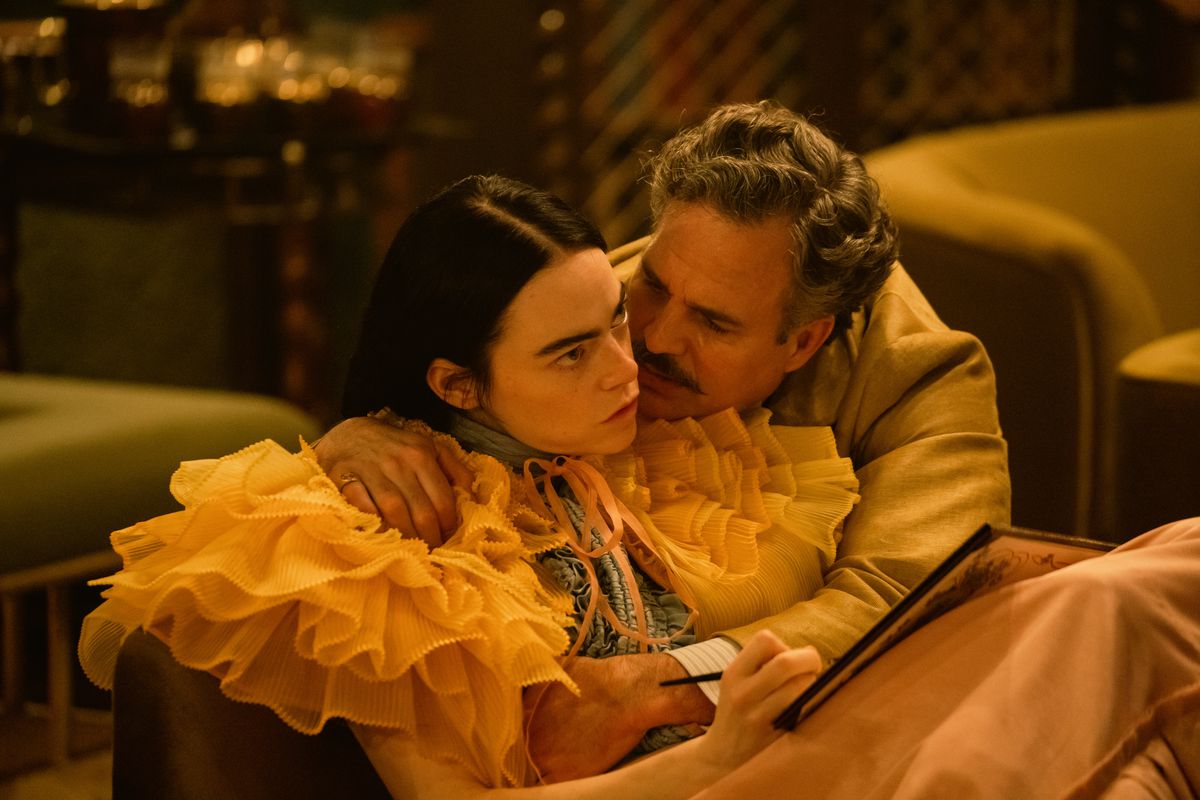
3. Poor Things
Is there any filmmaker who’s had a better trajectory in the new millennium than Yorgos Lanthimos? From small, low-budget Greek arthouse films to major studio deals, his films have never lost their true independent touch. Following Bella (Emma Stone), a Frankenstein-like experiment who after a suicide was brought back to life with her infant’s brain (yes, you read that right), Poor Things takes up a battle against proper, polite society. All viewed from Bella’s objective point-of-view, every major and minor bit of production design pushes her toward a higher enlightenment of thought, from the discovery of sex and pleasure, to ethics and philosophy. We see animals who couldn’t possibly exist, architecture that couldn’t possibly hold, and gadgets that couldn’t possibly function. Like every Lanthimos film, it’s a study of human behavior under a magnifying glass, an unbiassed view as to why we behave the way we do.
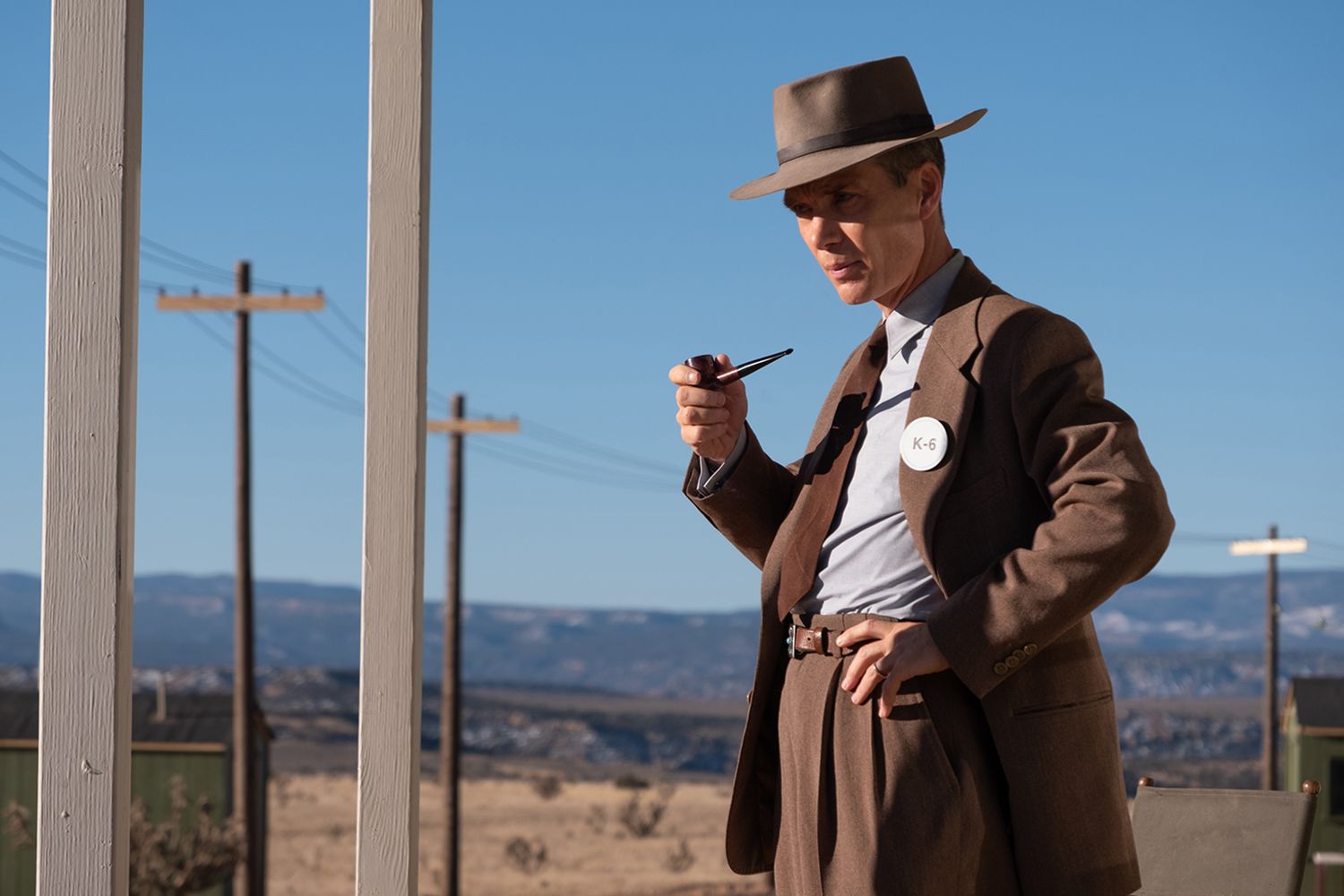
2. Oppenheimer
The year’s most anticipated film ultimately delivered upon a string of important factors: appearances by everyone’s favorite actor, the ever-present looming threat of international war, and, of course, a release date with Barbie. Unfortunately, what we will remember is not the story of Oppenheimer. What we’ll remember is the “idea” of Oppenheimer. A massive, epic summer blockbuster that debuted head to head with another pinnacle of American capitalism – the nuclear bomb vs. the Barbie doll. We’ll remember the IMAX 70mm roadshow release, and the film’s epic climax, the “event-ness” of it all. All of this, however, is precisely what will get in the way of how we’ll remember the film’s true theme of temptation. Oppenheimer feels like the film Christopher Nolan was born to make: a gripping two and a half hour biopic that constantly makes you feel you’re on the precipice of something. As J. Robert Oppenheimer stared down a void of no return, one couldn’t help but feel there was a possibility to do something just because it was within our grasp, a chance to evolve the way humans portray their past. Or maybe we are the instigators of our own fate. Maybe we do lack the intelligence to ensure humanity’s progress. The film speaks echoes of how we’ll view ourselves generations from now, and how we ourselves will be the source of our own destruction.
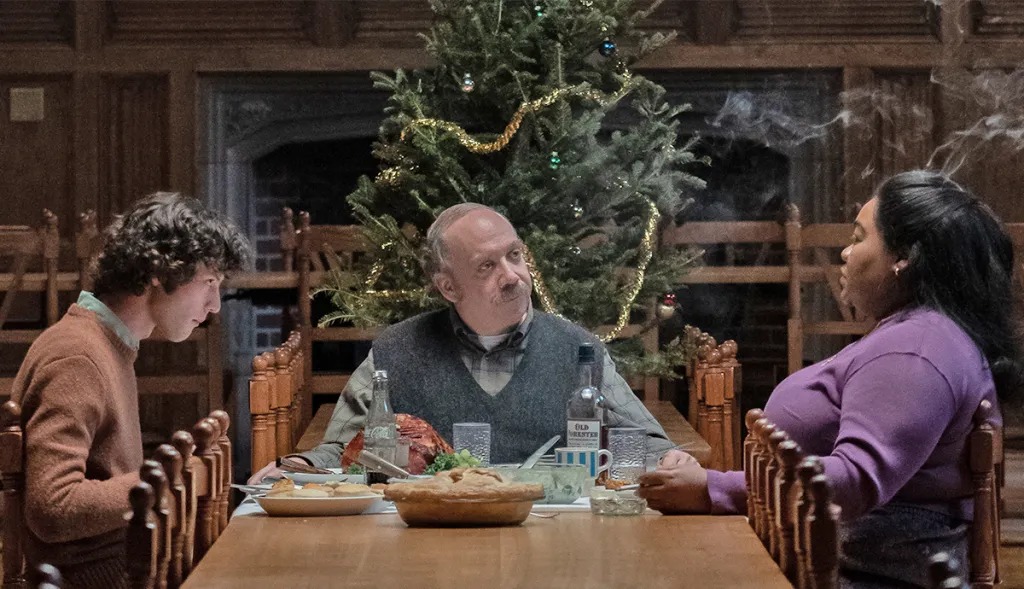
1. The Holdovers
This publication has never been one to tell you how to feel. At its best, it merely recommends or invokes thought within the spectator, to get the reader out of their conventional taste or mindset to try something new, or at least inquire. The Holdovers isn’t anything new. If anything, one wouldn’t be wrong if they were to say this film was plucked right out of the 70s. Because if this was the 70s, films like these would be much more commonplace. But it’s 2023, a cinematic year that’s been filled with the nuclear bomb, toy dolls, and labor strikes. But only one film this year, with its lack of ego, corporate sponsorship (and money), and celebrity shine, captured what feels like a shadow finding its soul.
Within this humility is precisely what makes The Holdovers so cinematic. It’s sheer lack of magnitude makes the film hold its weight. There are no set pieces, musical numbers, nor are there any points of self-interest to draw attention to itself. The story of tolerance via an asshole boarding school teacher (played by Paul Giamatti) forced to watch over the students who can’t go home for the holidays isn’t one that particularly fills seats. But in this intimacy, this self-effacing approach with performances, is precisely what makes its cinematic power shine through.
And I’m sure in the 70s, films like The Holdovers were a dime-a-dozen: sincere portrayals of flawed characters, intimate conflicts, stakes… movies! And it’s all right here, emulated in a chemical change. The character relationships change. They move: flawed characters being pushed toward change based on the cast of characters they’re surrounded by, a change that’s as deep as its emulsion. And for a moment, when the projector light illuminates these souls and shines through their glowing, fluorescent, flawed shells, we’re able to see what truly is the most cinematic phenomenon of all: people.
